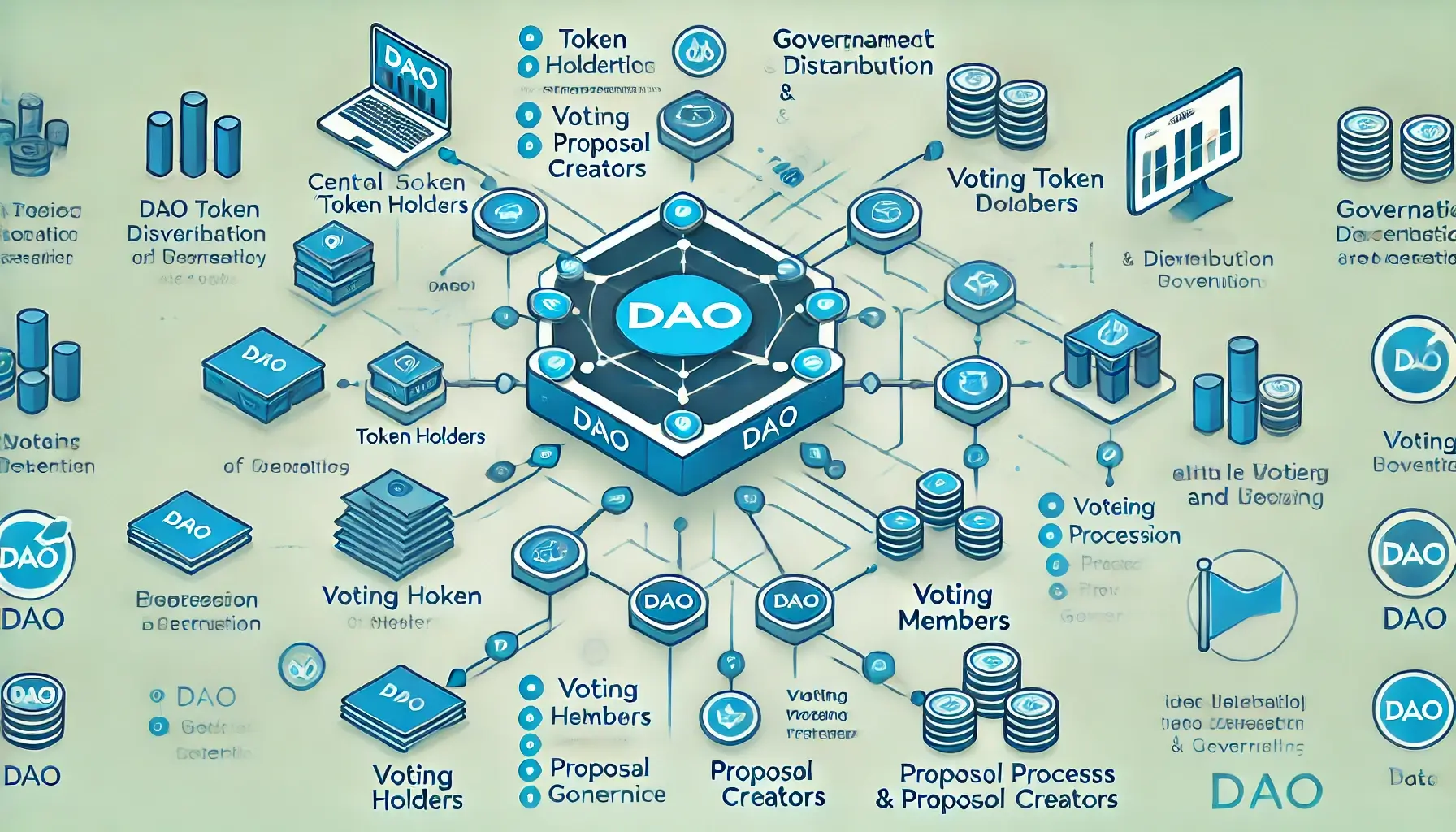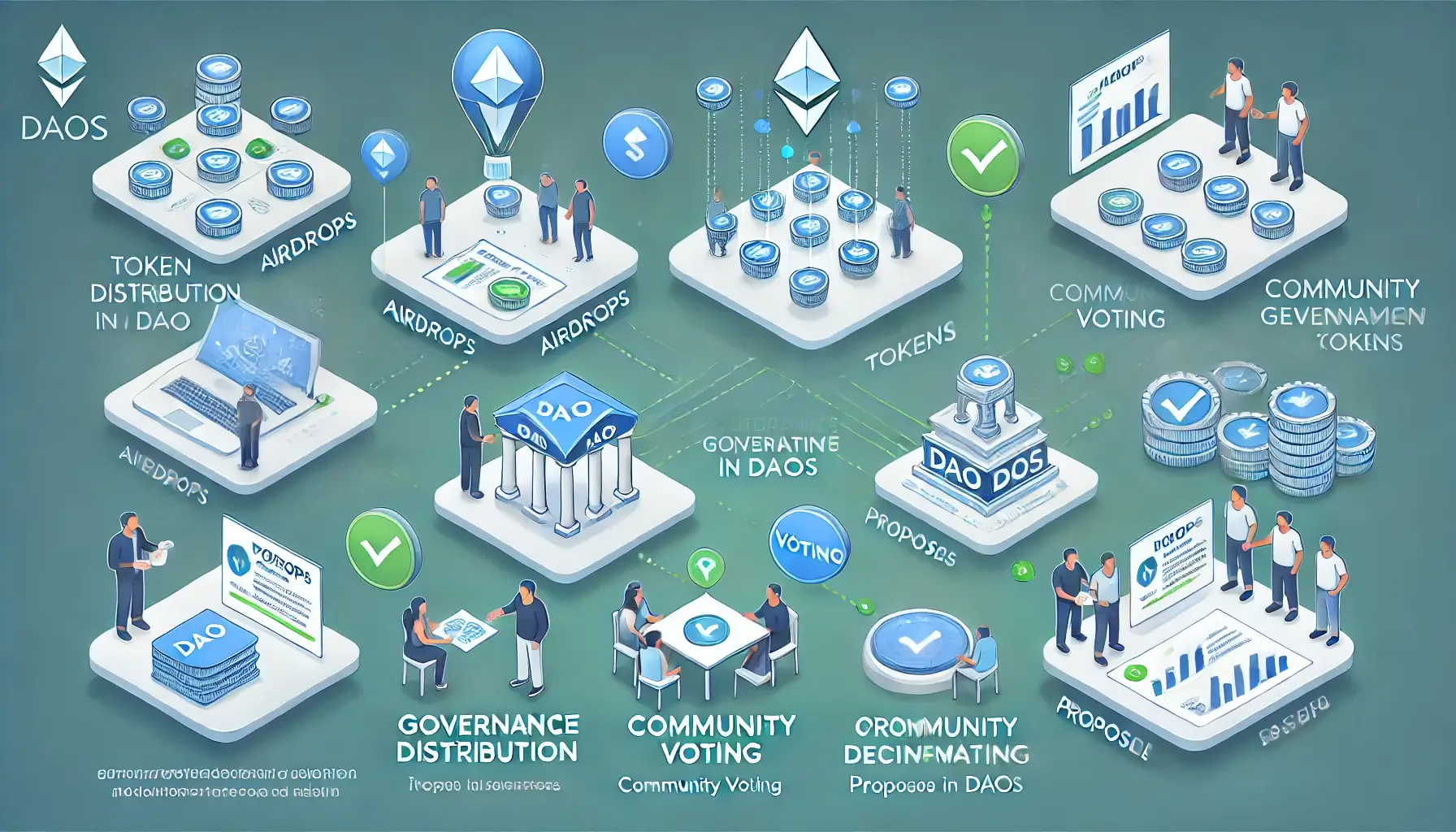Airdrops have become a game-changing tool in the DAO ecosystem, serving as an innovative way to distribute governance tokens, decentralize power, and incentivize active participation. As DAOs gain traction, airdrops are playing a critical role in ensuring equitable token distribution, empowering communities, and strengthening decentralized decision-making. This article explores how airdrops are influencing DAOs and shaping the future of decentralized governance.
1. How Airdrops Enhance DAO Governance
1.1 Decentralizing Power Structures
One of the most critical aspects of DAOs is their ability to decentralize decision-making power. Airdrops distribute governance tokens across a wide range of participants, preventing power concentration. For instance, projects like Uniswap ensured fair participation by rewarding governance tokens to early users, allowing them to influence the platform’s future.
1.2 Encouraging Community Engagement
DAO airdrop influence extends beyond token distribution it fosters active community participation. Airdrops incentivize members to engage in governance, vote on proposals, and contribute to discussions. An example is the Optimism airdrop, where recipients were encouraged to actively shape Layer 2 ecosystem governance.
2. Distributing Resources Through DAO Airdrops
2.1 Token-Based Resource Allocation
Airdrops allow DAOs to allocate resources efficiently. By providing tokens to contributors, DAOs fund essential activities such as development, marketing, and community-building. For instance, Aragon used airdrops to distribute ANT tokens, enabling community-driven funding initiatives.
2.2 Fostering Ecosystem Growth
Airdrops help DAOs grow their ecosystems by rewarding early adopters and contributors. Projects like Balancer use airdrops to incentivize liquidity providers, ensuring the stability and functionality of their platforms.
3. Strengthening Governance with Airdrops
3.1 Cross-Community Collaboration
DAOs often rely on collaboration across multiple blockchains. Airdrops facilitate this by distributing tokens to users from different ecosystems, encouraging cross-community engagement. For example, Cosmos has leveraged airdrops to create interconnected governance systems among its blockchain hubs.
3.2 Improving Voting Accessibility
Governance in DAOs can be complex, but airdrops make it more accessible by giving participants voting rights. Tools like Snapshot enable gasless voting, allowing airdrop recipients to contribute to DAO governance decisions easily.

4. Examples of DAO Airdrop Influence
4.1 Uniswap’s UNI Airdrop
Uniswap’s token airdrop set a new standard in DAO governance. By rewarding early users, the platform empowered its community to vote on key proposals, creating a robust and inclusive governance structure.
4.2 Optimism’s Governance Token Airdrop
Optimism’s OP airdrop distributed tokens to early adopters and incentivized governance participation. This approach ensured that stakeholders actively contributed to Layer 2 scaling decisions.
4.3 Aragon’s ANT Token Airdrop
Aragon’s airdrop strategy focused on funding ecosystem initiatives. By distributing ANT tokens, the project encouraged contributors to take part in governance and development activities.
5. Challenges in DAO Airdrop Strategies
5.1 Preventing Token Dumping
Token dumping is a common issue following airdrops. DAOs address this by introducing vesting periods or requiring recipients to stake their tokens to participate in governance.
5.2 Ensuring Fair Distribution
Uneven token distribution undermines decentralization. Tools like Etherscan and Nansen help DAOs monitor airdrop fairness and identify potential imbalances in token allocation.
6. The Future of Airdrops in DAO Ecosystems
Airdrops are set to become even more integral to DAOs as they evolve. Here’s what to expect:
- Targeted Airdrops: Rewarding participants based on contributions, such as voting frequency or proposal submissions.
- Cross-DAO Partnerships: Distributing tokens across multiple DAOs to strengthen ecosystem collaborations.
- Dynamic Reward Systems: Introducing gamified governance models to encourage sustained participation.
As DAOs continue to redefine governance, airdrops will remain a powerful tool for driving engagement, distributing resources, and ensuring community-driven decision-making.
Conclusion
The DAO airdrop influence is undeniable, shaping how decentralized organizations operate and thrive. By distributing governance tokens and resources, airdrops empower communities, promote inclusivity, and strengthen decentralized governance structures. From Uniswap to Aragon, successful airdrop strategies demonstrate their transformative potential in the DAO ecosystem.
For those participating in DAOs, airdrops offer a unique opportunity to shape projects and achieve long-term value. As the ecosystem evolves, airdrops will continue to play a central role in redefining governance and resource allocation in decentralized systems.
For more insights on DAOs and blockchain technology, visit our Blockchain Technology Guides.
Stay Updated
For the latest updates on DAOs, airdrop strategies, and blockchain trends, follow us on:
Stay informed with cutting-edge strategies and insights at FreeCoins24.io.
Special Offer
Ready to trade governance tokens? Sign up on Bybit today and enjoy up to $30,000 in deposit bonuses. Start trading confidently on one of the world’s leading crypto platforms.
















